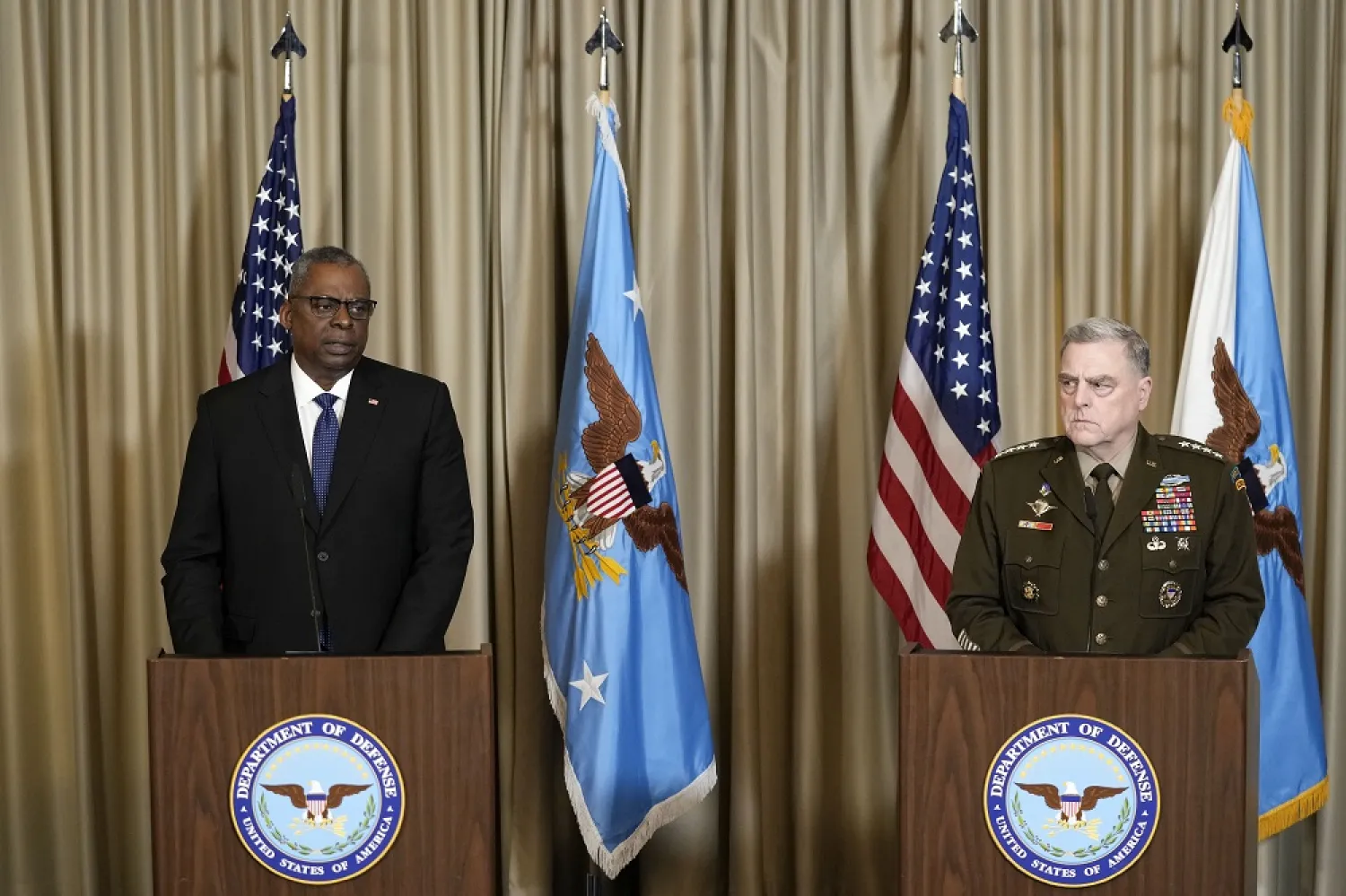The United States will begin training Ukrainian forces on how to use and maintain Abrams tanks in the coming weeks, as it continues to speed up its effort to get them onto the battlefield as quickly as possible, US Defense Secretary Lloyd Austin said Friday.
The decision comes as defense leaders from around Europe and the world are meeting at Ramstein Air Base, in the effort to coordinate the delivery of weapons and other equipment to Ukraine.
According to the officials, 31 tanks will arrive at Grafenwoehr Training Area in Germany at the end of May, and the troops will begin training a couple weeks later. Officials said the troop training will last about 10 weeks. The training tanks will not be the ones given to Ukraine for use in the war against Russia. Instead, 31 M1A1 battle tanks are being refurbished in the United States, and those will go to the frontlines when they are ready.
Germany, meanwhile, has signed a memorandum of understanding with Poland and Ukraine to set up a maintenance hub for Kyiv’s Leopard 2 tank fleet in Poland, near the Ukrainian border. Germany’s defense minister, Boris Pistorius, told reporters he expects the hub to cost 150-200 million euros ($165-220 million) per year, which “we will split fairly, like everything else.” He said he expects it to start work around the end of next month
The announcement came as ministers and representatives from about 50 nations gathered for the US-led meeting of what's called the Ukraine Defense Contact Group.
Austin, speaking to reporters at the close of the meeting, said the delivery of training tanks in the next few weeks represents “huge progress.” He added, “I’m confident this equipment — and the training that accompanied it — will put Ukraine’s forces in a position to continue to succeed on the battlefield."
The US goal has been to have the Ukrainian troops trained by the time the refurbished Abrams tanks are ready so they can then immediately move to combat. The tanks are being refitted to meet Ukraine’s needs.
Gen. Mark Milley, chairman of the US Joint Chiefs of Staff, added that he believes the American tanks will be very effective on the battlefield. “I do think the M1 tank will make a difference,” he said, while cautioning “there is no silver bullet in war.”
According to officials, about 250 Ukrainian troops will be trained — with some learning to operate the tanks and others learning to repair and maintain them. Additional training on how to fight and maneuver with the tanks could also be provided after the initial 10 weeks.
So far, the US has trained 8,800 Ukrainian troops who have already returned to the battlefield, and an additional roughly 2,500 are in training now. Their training has included everything from basic weapons instruction to how to conduct combat operations and maintain and repair equipment.
In other comments, Austin dismissed questions about providing fighter jets to Ukraine, saying the US is giving Ukraine ground-based air defense capabilities, which he said is needed most.
President Joe Biden's administration announced in January that it would send Abrams tanks to Ukraine — after insisting for months that they were too complicated and too hard to maintain and repair. The decision was part of a broader political maneuver that opened the door for Germany to announce it would send its Leopard 2 tanks to Ukraine and allow Poland and other allies to do the same.
Under intense pressure from Ukraine and others to get the tanks into Ukraine faster, the Biden administration said last month that it would speed up the delivery of Abrams tanks to Ukraine, opting to send a refurbished older model that can be ready faster. The goal is to get the 70-ton battle powerhouses to the war zone by the fall.
The US also made clear at the time that it would begin training Ukrainian forces on how to use, maintain and repair the tanks and that the instruction would coincide with the refurbishment of the tanks, so that both would be ready for battle at the same time later this year.
At the same time, the Pentagon must make sure that Ukrainian forces have an adequate supply chain for all the parts needed to keep the tanks running.
The Russian and Ukrainian forces have been largely in a stalemate, trading small slices of land over the winter. The fiercest battles have been in the eastern Donetsk region, where Russia is struggling to encircle the city of Bakhmut in the face of dogged Ukrainian defense. But both sides are expected to launch more intensive offensives in the spring.
Britain’s Ministry of Defense said Friday in its daily war assessment that soft ground conditions and mud across most of Ukraine will probably slow operations for both sides.
In other developments, Mykola Oleschuk, commander of Ukraine’s Air Forces, said Friday he had visited a US-made Patriot missile system deployed on the battlefield after its recent delivery. Ukrainian officials said Wednesday that the Patriots had arrived.
Russia attacked Ukraine overnight with Iranian-made self-exploding Shahed drones, the Ukrainian military said Friday. Russia launched about 10 drones at Ukraine targets, and eight of them were shot down by Ukrainian air defenses, Ukraine’s General Staff said.
At least six civilians have been killed and six more have been wounded in Ukraine over the past 24 hours, Ukraine’s presidential office reported on Friday morning.
According to Ukrainian officials, Russian shelling and missile strikes mostly targeted cities and villages in the embattled, partially occupied regions of Donetsk, Zaporizhzhia and Kherson.
Outside of these regions, the Russian forces also attacked the Chernihiv province on Thursday from mortars. Overnight, Russia launched drones to attack Kyiv, as well as the Poltava and Vinnytsia regions.









